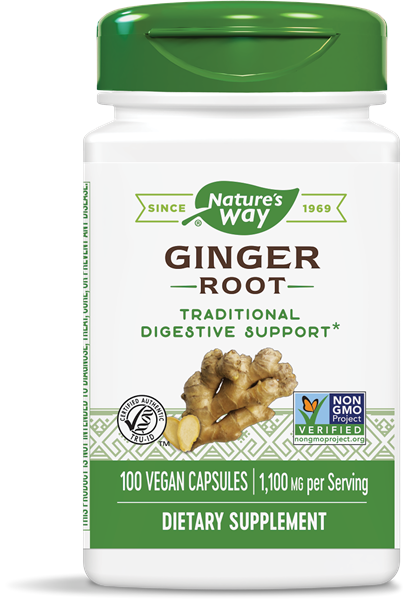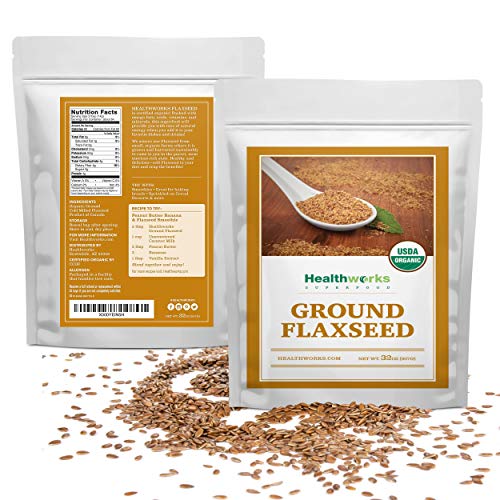An upset stomach is the worst. You’re uncomfortable in any position, and you never know how your stomach might empty itself—or when.

What’s even worse is trying to care for a child with an upset stomach. It’s difficult to know exactly how to help someone who can’t (or won’t) describe their discomfort in detail, and they tend to be less compliant with remedies they don’t like the smell of.
And nothing smells good. You know that your, or your child’s, body needs nourishment, but the sight or smell of food is often nauseating.
What do you do?
In less extreme cases, you start with clear liquids, then easily digestible foods, then medicinal and nutritious foods.
In this article we’ll go over the 10 best foods for an upset stomach that can help you feel better as soon as possible.
1. Water and Clear Liquids
The first step to dealing with an upset stomach is to stay hydrated and maintain or replenish what nutrients you can. If you can’t keep food down, it doesn’t make sense to try eating. And if you’re experiencing diarrhea or vomiting, dehydration can complicate your condition.
Start with water. If the nausea is severe, take a few small sips and then wait 30 to 60 minutes before drinking again.
When you can keep water down, try moving on to something with vitamins and minerals. Clear broths, coconut water, or low-sugar sports drinks are good options. These will also help restore electrolytes, to avoid imbalances and mitigate muscle cramping.
Special note: Chamomile tea
There are several herbal teas that can help with an upset stomach, but chamomile tea may be the best and most widely recognized. It has been used for centuries to treat diarrhea, nausea, and vomiting.
Although very little modern research has been done to discover exactly how or why it works so well, it is known to have anti-inflammatory and antispasmodic properties that soothe the digestive lining to reduce symptoms.

2. Bananas
Bananas are one of the best foods for an upset stomach as they’re easy to digest. So, when your stomach is having trouble with other foods, try this for a gentler option.
Bananas also have a few different elements that help with an upset stomach and diarrhea in different ways:
- Potassium is a vital mineral that you will lose quickly if an upset stomach causes diarrhea. Hypokalemia is a potassium deficiency that most frequently occurs after a sudden loss of fluids and can result in weakness, fatigue, and muscle cramping—none of which you need if you’re recovering from an upset stomach already.
- Fiber, specifically resistant starch, is especially present in green bananas, which fight diarrhea by absorbing extra water to harden stools.
- Pectin is also abundant in bananas, and is another natural fiber that can help bind up stools.
3. White Toast, Rice, or Crackers (Bland Carbohydrates)
Bland carbohydrates like plain white toast or saltine crackers are easy to digest, and can be good tummy filler when nothing else will stay down.

Avoid whole grains this time, and stick with carbs that are easier to digest. Oatmeal, plain white rice, and plain mashed potatoes (no butter) fall into this category as well.
Don’t stay here long, though. Bland carbs offer next to no nutritional value, so at least couple the plain white toast with some electrolytes. As soon as you can, add bananas or other food items with some vitamins and minerals.
4. Applesauce
Unsweetened applesauce is a good option for feeding an upset stomach, mostly because it’s another one that is easy to digest. It also starts to add some vitamins back to the body, so try to introduce it as soon as possible after clear liquids and bland carbs.
It’s also the final member of the “BRAT diet”, which stands for bananas, rice, applesauce, and toast. The BRAT diet is a common go-to list for feeding an upset stomach, because—as we’ve seen—these are all gentle on the digestive system.
An important note, however, is that the BRAT diet isn’t really a diet. It’s a list of foods to start with, when nursing an upset stomach, but it lacks most of the nutrients needed for general health and wellness.
Start here, but reintroduce more normal, healthy foods as soon as you start to feel better.
5. Ginger
Ginger has been proven to help alleviate symptoms of an upset stomach like nausea and vomiting, and it’s effective in almost any form—steeped as tea, cooked in food, or as a supplement.
There are a couple of theories about how ginger helps with an upset stomach, revolving around compounds called gingerols:
- Gingerol has anti-inflammatory properties that help to ease an upset stomach. (Shogaol is another anti-inflammatory compound in ginger, so two-for-the-price-of-one.)
- Gingerols may also interfere with serotonin receptors in the digestive system, blocking that sick feeling.
- Gingerols might even encourage the release of enzymes that help digestion, which cuts down on the length of time that you feel nauseous.
Whatever the reason, it works. So keep some fresh ginger, ginger tea, or reliable supplements on hand for an upset.

Note: What does not work is convenience store ginger ale. Most common ginger ale sodas don’t have any real ginger in them. Even the more traditional sodas that are made with real ginger contain very little of the magic ingredient, and not enough to justify the sugar and carbonation—both of which can cause bloating and gas build-up, worsening an upset stomach.
6. Papaya
Once you’re holding down clean liquids and easy foods like white toast and bananas, try papaya. Not only will the sweet, relatively exotic flavor boost your spirits, papaya helps ease an upset stomach in three ways:
- High water content helps ease constipation and improve digestion, emptying your stomach of whatever ails it as quickly as possible.
- Natural fibers also encourage regular bowel movements, preventing back-up and flushing the digestive system as efficiently as possible.
- Papains are enzymes in papaya that have anti-inflammatory properties and act as a natural painkiller. They also aid in digestion by helping to break down proteins.
7. Flaxseed
Flaxseed is a tiny seed packed full of soluble fiber. That soluble fiber, as well as the oil from the seeds, helps move the digestive system along. Flaxseed has long been used to treat constipation and other digestive issues, although most medical professionals believe that more evidence is still needed on its effectiveness for those other digestive issues.
Flaxseed is effective for combating the uncomfortable side effects of constipation when taken regularly, so it’s not a quick fix. If constipation is a recurring issue, however, adding flaxseed to your regular diet is a great solution.
(In addition to keeping your stomach happy, flaxseed comes with a host of other health benefits, such as omega-3 fatty acids, lignans, antioxidants, and lots of vitamins and minerals.)
The catch with flaxseed is that you can’t eat them whole, because they will just pass through your system. Get ground flaxseed or flaxseed oil instead. Ground flaxseed, for example, can be sprinkled on oatmeal or baked into breads. It also blends well into a smoothie.

8. Licorice
Licorice is a popular food for an upset stomach, but it’s only effective in certain circumstances.
First, the licorice you might find in the candy aisle is not going to help. It will probably make you feel worse, due to the sugar content. Licorice that helps soothe an upset stomach is licorice root, and is most effective as a supplement or a tea.
Licorice root extract repairs the stomach lining, which can calm symptoms of food poisoning, heartburn, and stomach ulcers.
It also contains glycyrrhizic acid. Glycyrrhizic is an anti-inflammatory, so in small doses it can help ease stomach discomfort. It can start to cause trouble, however, if used as a consistent, long-term solution for heartburn or ulcers.
Enter DGL. Deglycyrrhizinated licorice is a form of licorice that has been processed to remove most of the glycyrrhizic acid. This makes it safer for regular consumption. If your upset stomach is likely acid reflux, and is a fairly common occurrence, try adding a DGL supplement to your diet.
9. Peppermint Oil or Peppermint Tea
Peppermint is a commonly recommended cure for any kind of upset stomach—as a hot tea or as an essential oil—but does it really work? And how?
Some researchers think that peppermint helps prevent cramping by relaxing gastric muscles. At least one study found that inhaling peppermint oil does help relieve feelings of nausea. It has also been proven to be an effective treatment for irritable bowel syndrome (IBS).
If your upset stomach is likely a symptom of heartburn, however, peppermint is not the remedy for you. The relaxing effects that make peppermint a good solution for lower digestive discomfort, also relaxes the sphincter between the esophagus and stomach—making existing acid reflux issues even worse.
10. Aloe
Aloe vera is a known anti-inflammatory. It also contains enzymes that help break down sugars and fats to aid digestion.
Scientific evidence for aloe as treatment for a variety of common stomach ailments, however, is extremely limited. One study suggested aloe is effective against IBS, but that study did not include a placebo control group. Other studies have tested aloe as a remedy for IBS, constipation, and gas—most saw no benefit from aloe or were inconclusive.
Aloe juice also comes with a specific set of risks:
- Miscarriage — Aloe vera use may induce miscarriage. Pregnant women should not ingest aloe juice.
- Hypoglycemia — Aloe vera juice can enhance the effects of some diabetes medications, causing hypoglycemia.
- Diarrhea — Aloe juice contains a laxative called anthraquinone.
- Tumors — Long-term use of anthraquinone laxatives have been associated with increased risks of intestinal tumors.
So can aloe vera juice help combat an upset stomach? Probably—if you’re not pregnant or on medication for diabetes. Is it worth it? With so many other options, probably not.
When to see a doctor
Most of the time, an upset stomach is gas, or a food item that wasn’t top-quality, or a bad combination of choices, etc. There are circumstances, however, when you should not try to treat an upset stomach at home.
If you or a loved one are experiencing any of the following, please call a doctor:
- Excessive vomiting
- Vomit containing blood
- Complete lack of appetite
- Unexplained weight loss
- Changes in bowel movements
- Difficulty swallowing

Additionally, if you have any doubts, concerns, or questions, always trust your gut (especially when it’s not feeling well) and call your doctor.
What to feed an upset stomach
An upset stomach is different for almost everybody, and is usually something that just needs to be endured until it passes.
In the meantime, it’s important to keep the rest of your body as healthy as possible, so you can heal as fast as possible. Stay hydrated. Then, try a BRAT item that won’t tax your digestive system too much. If you can do that, introduce medicinal and nutritious food items as soon as possible.
[Updated April 2020]ABOUT THE AUTHOR:

